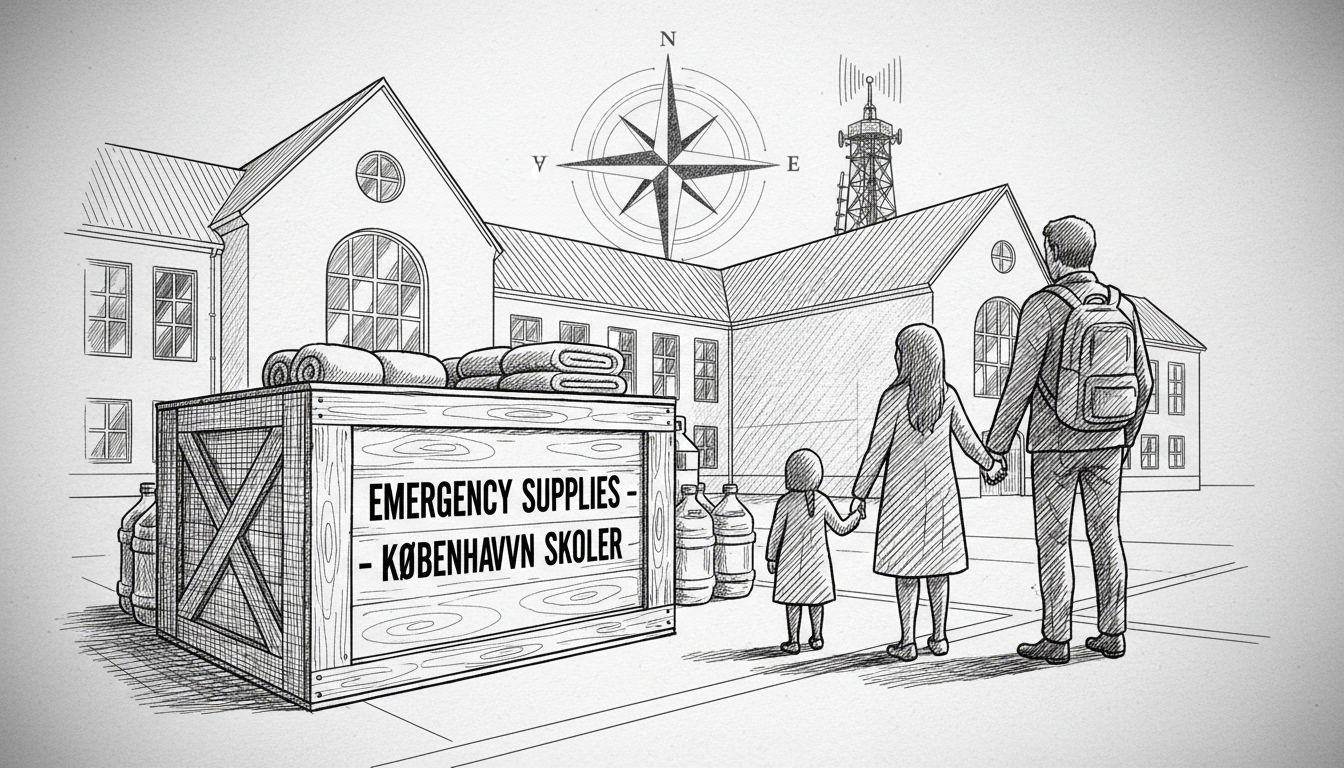Three major political parties in Copenhagen want public schools to store emergency supplies for residents and tourists. The Social Democrats, Venstre, and Danish People's Party propose creating backup reserves in schools across the capital. These reserves would include water, emergency blankets, and radio transmitters for crisis situations.
The initiative targets people who cannot build their own emergency supplies. This includes students living in dormitories, tourists caught in emergencies, and residents without adequate storage space. One leading politician described the school reserves as a backup system for those who cannot follow official preparedness recommendations.
The proposal forms part of a broader nine-point emergency preparedness plan. Other measures include increased funding for Copenhagen's emergency services and analysis of existing shelter facilities. The parties also want to establish vocational training programs for fire and emergency response professionals.
Copenhagen's unique urban landscape creates special challenges for emergency preparedness. Many residents live in small apartments without storage space for emergency supplies. The city also hosts millions of tourists annually who would need assistance during crises. This initiative addresses gaps in traditional preparedness models that assume everyone can store their own supplies.
School administrators would receive special crisis management training under the proposal. This training would prepare them to manage emergency situations and distribute supplies effectively. The parties have not specified the plan's total cost but believe funding can be found within the municipal budget.
Denmark has maintained strong civil defense traditions since the Cold War era. Many older buildings still contain designated shelter spaces. This new initiative represents a modernization of those traditions for contemporary urban challenges. It acknowledges that modern crises require community-based solutions rather than individual preparedness alone.
The political cooperation across traditional party lines signals the importance of emergency preparedness. All three parties recognize that basic crisis readiness transcends ordinary political disagreements. Their joint proposal reflects growing concerns about climate-related emergencies and global instability.
International readers should note that Danish municipalities have significant autonomy in local affairs. Copenhagen can implement many emergency measures without national government approval. This decentralized system allows cities to tailor preparedness plans to local conditions and needs.
The proposal now moves to municipal committee discussions for detailed planning and budgeting. Implementation would likely occur gradually as schools integrate emergency storage into their facilities. The initiative represents a practical approach to urban resilience that other Nordic cities may eventually emulate.

